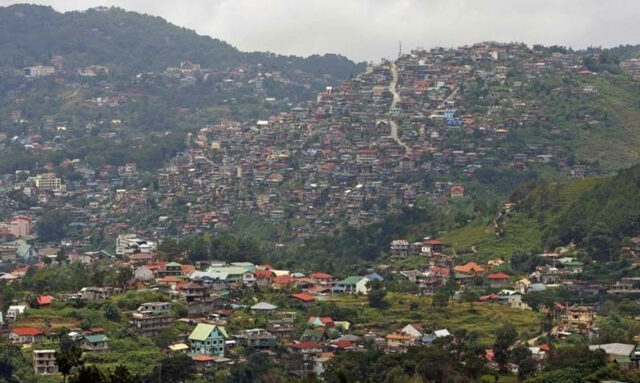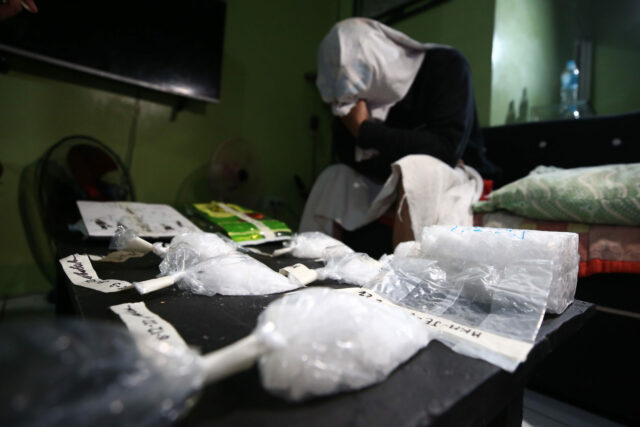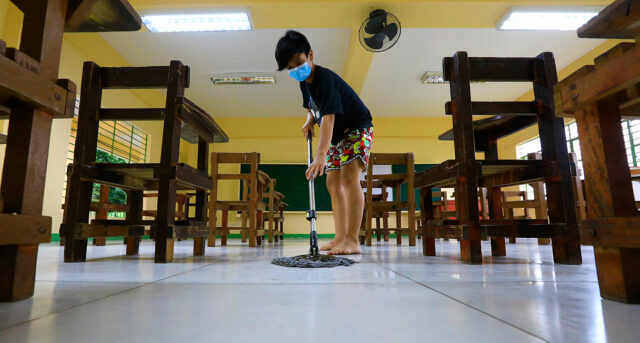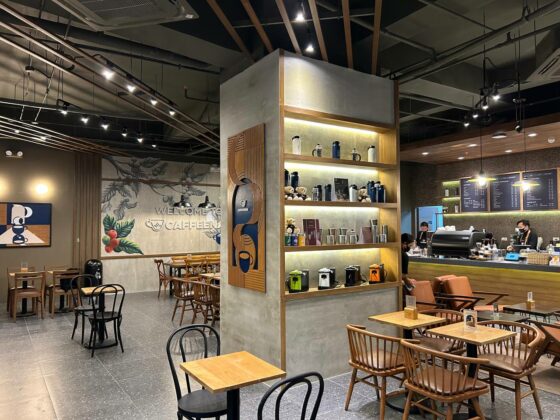By Kyle Aristophere T. Atienza, Reporter
THE PHILIPPINES on Wednesday belied the claim of China’s envoy in Manila that its coast guard allowed Manila’s resupply mission at Second Thomas Shoal on Aug. 22 on humanitarian grounds.
Chinese ships had actually tried to block the Philippine boats carrying fresh supply for Filipino marines, Philippine Coast Guard spokesman for the West Philippine Sea Jay Tarriela told a televised news briefing.
He said Chinese Coast Guard and maritime militia vessels had again tried to block the resupply mission this week. “It’s not true that they extended humanitarian assistance in allowing our supply boats.”
Mr. Tarriela said the Philippines’ transparency strategy that seeks to expose China’s aggression at sea was “the main reason why the Chinese government is no longer allowing the China Coast Guard to use water cannon.”
He also debunked the claim of Chinese Ambassador to the Philippines Huang Xilian that the two countries have a special arrangement over what items Manila can bring to its military outpost at Second Thomas Shoal.
“First of all, we don’t need permission from the People’s Republic of China,” he said. The shoal, which the Philippines calls Ayungin, lies within the country’s exclusive economic zone.
“We have sovereign rights over these waters. We don’t have to explain what are the supplies that we need to bring to BRP Sierra Madre,” he said, referring to the World War II-era ship that the Philippines intentionally grounded there in 1999 to assert its claim.
Second Thomas Shoal is about 200 kilometers from the Philippine island of Palawan and more than 1,000 kilometers from China’s nearest major landmass, Hainan Island.
“We should not overstate China’s step back,” Raymond Powell, a fellow at the Gordian Knot Center for National Security Innovation, said in a Twitter message. “All they did was return to the status quo ante, in which they continued to blockade and harass the Philippine ships.”
“The fact that they ultimately did not resort to water cannons this time is good, and may be attributable to the fact that they know the world is watching,” he added.
Second Thomas Shoal is a low-tide elevation and technically not a territory to be contested by any state, Richard J. Heydarian, a senior lecturer at the Asian Center of the University of the Philippines, tweeted.
“It’s within the Philippines’ exclusive economic zone, so it’s free to do whatever it deems justified without getting anyone’s permission,” he said.
After the Philippines’ successful resupply mission on Tuesday, Mr. Huang said “there has never been a problem” with the Philippines delivering humanitarian supplies to its troops on BRP Sierra Madre.
He accused the Philippines of transporting large-scale building materials during its Aug. 5 resupply mission, which the Chinese Coast Guard tried to block using water cannons.
‘OPTICS’
China has no right to dictate what materials the Philippines can deliver to BRP Sierra Madre, Armed Forces of the Philippines spokesman Medel M. Aguilar told Wednesday’s briefing.
On Tuesday, the Philippine military and coast guard completed its resupply mission for BRP Sierra Madre, despite the Chinese Coast Guard’s attempts to “block, harass and interfere” with the activity.
A video released by the Philippine Coast Guard showed its Chinese counterpart trying to block its two vessels escorting the two boats chartered by the Philippine military for the resupply mission.
The two supply boats were also blocked by four maritime militia vessels.
Mr. Tarriela said the deployment of several Chinese vessels during Tuesday’s mission was “defeating” claims that China had allowed the activity on humanitarian grounds.
The Chinese Coast Guard on Tuesday deployed only four vessels, two of which were smaller than the Philippine Coast Guard ships, compared with the six vessels it deployed on Aug. 5, Mr. Tarriela said.
“I think this has something to do with optics,” he said. “They want to show the world that they are not really that aggressive in preventing our resupply operations.”
The resupply operation on Tuesday was “not a walk in the park,” Mr. Tarriela said. “We still experienced a dangerous maneuver.”
Don Mclain Gill, who teaches foreign relations at De La Salle University in Manila, said media reports here and overseas on China’s aggression had helped the Tuesday resupply mission succeed.
Civil society, media and academics should continue their “proactive collaboration” to secure the rule of law in the South China Sea, he added.
China is the only South China Sea claimant that has used dangerous maneuvers against Philippine vessels within the latter’s exclusive economic zone, Mr. Tarriela said at the same briefing.
This is amid reports that Vietnam, another South China Sea claimant, is planning to boost its presence in the Spratly Islands.
“As to the militarization of Vietnam, most of these countries are carrying out development and the capability of their military,” he said.
“We have good foreign relations with Vietnam. We don’t experience dangerous maneuvers with each other every time we pass by the Vietnam Coast Guard. They also don’t harass our fishermen,” he added.













